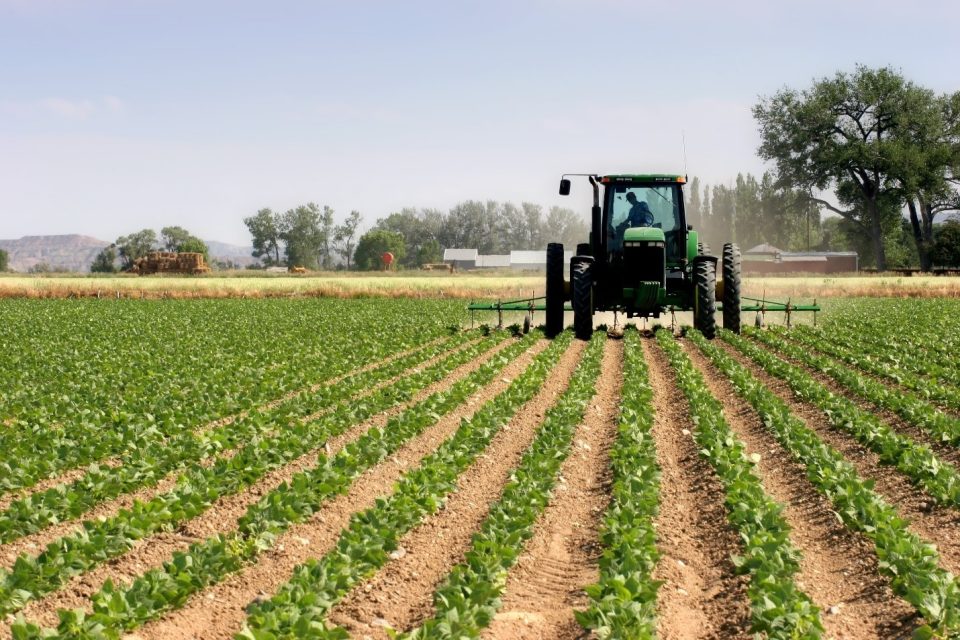The Federal Government on Tuesday announced new incentives aimed at unlocking Nigeria’s vast food production potential and strengthening the nation’s agricultural value chain under President Bola Ahmed Tinubu’s Renewed Hope Agenda.
Vice President Kashim Shettima, who made the disclosure in Abuja at the Food and Agriculture Organisation (FAO) National and Subregional Hand-in-Hand Investment Forum, said the initiatives were designed to expand irrigation, strengthen credit access, and create millions of rural jobs.
According to him, while hunger poses a global security issue, Nigeria must mobilise its strengths to secure a future of abundance.
“Nothing unifies humanity as much as hunger. It is the great equaliser that reveals our vulnerabilities and the shared fragility of our existence. Food is not merely a matter of survival; it is a matter of global security,” he said.
The Vice President noted that the administration is introducing single-window platforms for land registration, strengthening agricultural credit systems, expanding irrigation infrastructure, and scaling mechanisation.
“We must facilitate access to land and resources for serious investors. We must drive mechanisation to reduce drudgery and enhance productivity. We must strengthen the agricultural credit system to ensure capital flows to where it is needed most,” he said.
Senator Shettima specifically observed that irrigation is a game-changer, noting that Nigeria has river basins and aquifers capable of irrigating over three million hectares but currently uses less than ten per cent.
In a statement issued by Senior Special Assistant to the President on Media and Communications, Office of the Vice President, Stanley Nkwocha, Shettima said, “strategic investment in irrigation alone could triple yields, free us from seasonal dependency, and fortify our resilience against climate shocks”.
The Vice President also assured investors that Nigeria’s policies are being re-engineered to attract capital through regulatory reforms, public-private partnerships, and agri-tech innovation.
“Nigeria is open for business, and we are ready to partner with you. Let us work hand-in-hand to build Nigeria and a subregion where no one goes to bed hungry, where rural communities are hubs of wealth creation, and where agriculture is the true foundation of our prosperity,” VP Shettima said.
The Vice President further assured that Nigeria is open for business and ready to partner with relevant stakeholders and investors in implementing its national blueprint targeted at creating 21 million full-time jobs in rural and agrarian communities, while securing national food and nutrition sufficiency.
“The vehicle to this future is the quality of policies we have chosen to prioritise. At the top of these interventions stands our National Development Plan (2021–2025), which has set forth ambitious but achievable targets.
“This blueprint seeks to lift 35 million Nigerians out of poverty, create 21 million full-time jobs in rural and agrarian communities, and secure national food and nutrition sufficiency through deliberate and strategic investments in agriculture,” he added.
Earlier, Minister of Agriculture and Food Security, Senator Abubakar Kyari, made a presentation on Nigeria’s investment atmosphere and country profile, highlighting key challenges and potentials for investment across the agribusiness value chain.
He said a combination of Nigeria’s domestic market, large arable land, clement weather, and fast-growing digital economy presents unique opportunities for investment across the agribusiness ecosystem.
For his part, the Minister of Budget and Economic Planning, Senator Atiku Abubakar Bagudu, said the economic potential of Nigeria remains largely untapped, especially in agriculture and irrigation, which hold significant promise for economic diversification and transformation.
He noted that agriculture, particularly agribusiness, remains a pivotal component of Nigeria’s national development plan in the medium and long term, as well as the Renewed Hope Agenda of President Tinubu.
For his part, the Minister of Agriculture, Livestock and Food Security of The Gambia, Dr Demba Sabally, commended the FAO for hosting the event and Nigeria’s leadership in agriculture, highlighting the country’s success stories in the rice and cassava value chains as worthy of emulation by countries in the sub-region and beyond.
He emphasized the need for peer review among countries in the West African sub-region because of their common challenges and opportunities for growth and transformation.
In the same vein, representative of the Food and Agriculture Organisation (FAO) in Nigeria and ECOWAS, Dr Hussein Gadain, said the Hand-in-Hand Initiative is FAO’s “evidence-based, country-led, and country-owned flagship programme, designed to accelerate agricultural transformation and sustainable rural development.”
He said the programme is squarely aimed at eradicating poverty, ending hunger and all forms of malnutrition, and reducing inequalities. It is our vehicle for achieving the SDGs.
Commending Nigeria’s clear agricultural development priorities and describing them as catalysts for transformative and sustainable growth within Africa’s agri-food systems, Dr Gadain hailed Vice President Shettima’s genuine commitment and visionary leadership in transforming Nigeria’s agri-food systems.
According to the FAO rep, the VP’s “passion for agriculture, food security, and nutrition is unmatched. He has been a driving force in attracting crucial investments and fostering innovation, and his continued engagement deserves our highest commendation.”
Also, the Head of the EU Delegation in Nigeria, Mr Gautier Mignot, said the Hand-in-Hand Initiative reflects Nigeria’s strong commitment to strengthening food security and deepening investment across the agribusiness value chain.
He declared that the EU remains Nigeria’s long-term partner in Nigeria’s agricultural journey and is committed to investing in value chain development in the country, starting with the recent investment of over 80 million euros to unlock opportunities in key value chains across 7 states.
He said the EU stands ready to deepen collaboration with Nigeria as a partner to ensure irrigation becomes a pathway for economic growth and agricultural transformation.

